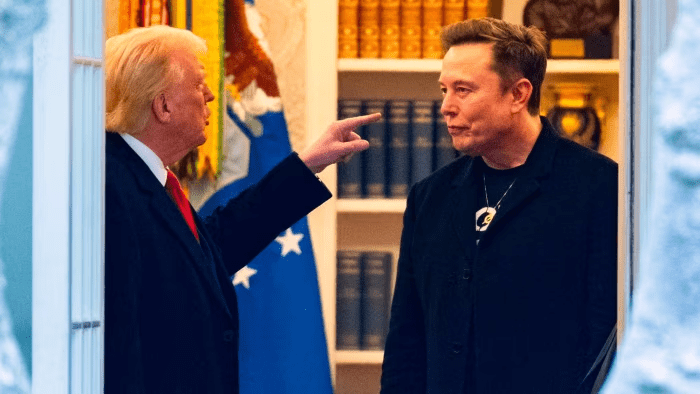President Trump threatened to cut off Elon Musk’s federal contracts, showing that he looks at the government as his own means of penalizing those who cross him.
Elon Musk and Donald Trump’s once-promising political alliance took a sharp turn this week, culminating in a very public fallout. The rift between the two influential figures escalated rapidly, with Musk, the wealthiest individual globally, accusing the US President of associating with a notorious sex offender, prompting Trump to retaliate by questioning Musk’s mental state.
What ensued was a fiery exchange of insults and threats, with Trump hinting at the potential cancellation of all government contracts and subsidies awarded to Musk’s enterprises. This move threatened not only Musk’s tech empire but also the government agencies reliant on his services. In response, Musk announced plans to decommission SpaceX’s Dragon spacecraft crucial for NASA’s missions, only to backtrack on this decision later.
The spectacle played out like a high-stakes reality TV show, underscoring the risks associated with entrusting critical public assets to private entities controlled by unpredictable billionaires. The feud laid bare the vulnerabilities inherent in such partnerships, where personal disputes can jeopardize essential services and billions of dollars hang in the balance.
The erratic nature of their clash highlighted the capricious decision-making of both Musk and Trump. Musk’s impulsive announcement regarding SpaceX’s spacecraft, followed by a sudden reversal, underscored the volatile dynamics at play. The episode served as a stark reminder of the potential repercussions when private interests intertwine with government operations, raising concerns about accountability and stability.
As tensions between Musk and Trump escalate, the fallout from their feud may have far-reaching implications, resonating beyond mere personal animosity. The clash illuminates the complex interplay between individual power, public infrastructure, and geopolitical tensions, underscoring the fragility of relying on singular figures for essential services.

